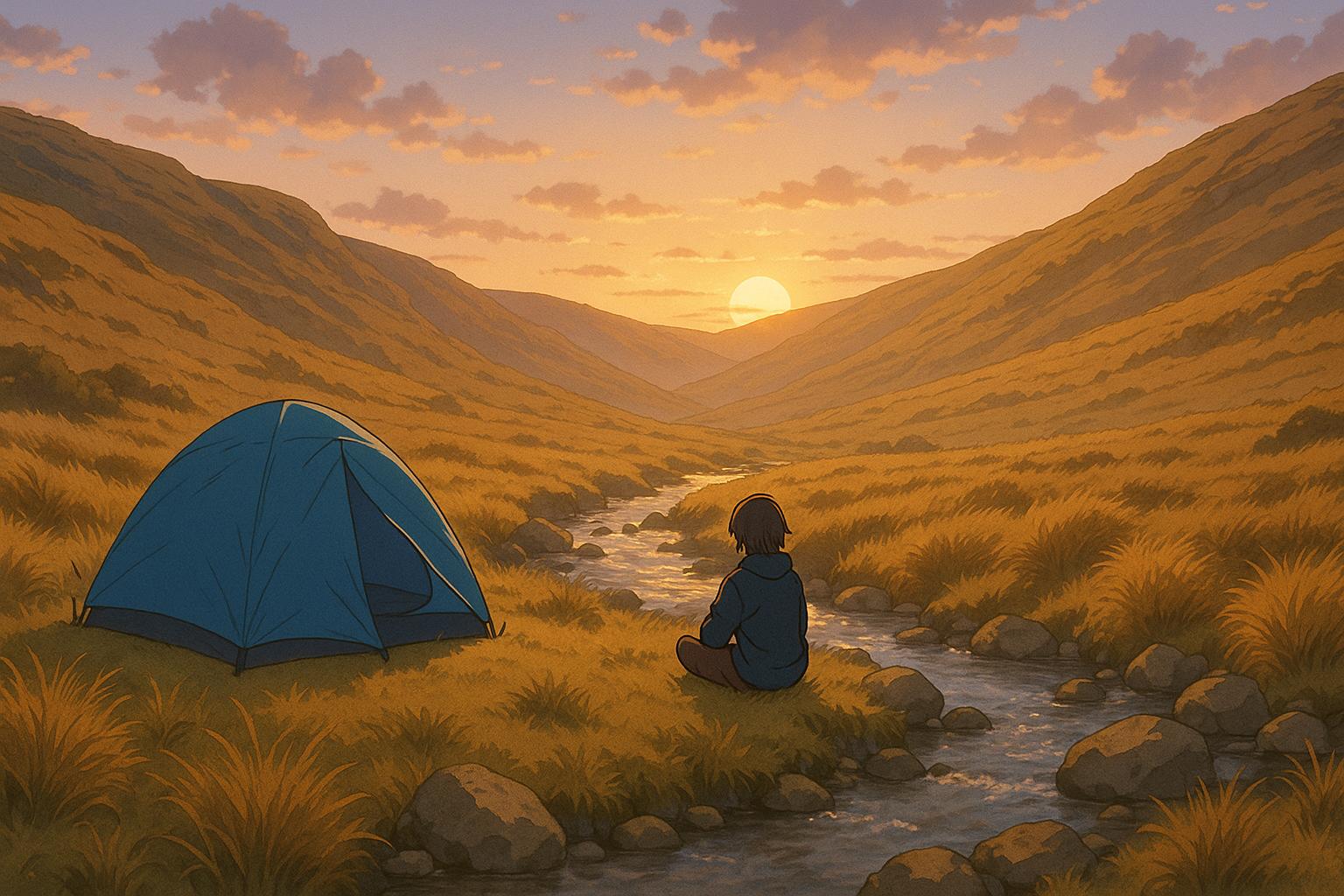Gentle bird song and the soothing murmur of water flowing over boulders stirred me awake at dawn. As the pale-yellow light crept over the steep, tussock-clad valley where I had spent the night, I relished a moment of solitude—just me and my thoughts. Such moments of peace and communion with nature are increasingly precious, particularly after a court ruling that reaffirmed a cherished public right: the freedom to wild camp on Dartmoor.
This right was jeopardised two years ago when Alexander Darwall, a multimillionaire hedge fund manager and owner of a significant portion of Dartmoor's landscape, initiated legal proceedings to restrict backpack camping on his 1,619-hectare estate. He argued that wild camping disrupted his conservation efforts and posed risks to his livestock. However, a recent landmark ruling by the UK Supreme Court dismissed his assertions, significantly broadening the interpretation of "open-air recreation" to include wild camping.
This decision marked a historic victory for outdoor access advocates, who celebrated the ruling as a win for public rights, particularly as Dartmoor remains the only location in England where wild camping is permitted without landowner consent. Echoing a sentiment shared by many, a member of the Right to Roam advocacy group remarked on the ruling to a national newspaper, emphasising the critical need to safeguard access to nature for future generations.
As I traversed the rugged moorland, I passed by Blachford Manor, the Darwalls' expansive home, without the need to knock on their door for permission to camp on the adjacent moorland. The contrast between this wild camping experience and the commercial campsites, characterised by queues and crowded pitches, is stark. Instead, this experience offers not just solitude, but a sense of responsibility for the environment. Campers are expected to leave no trace, carrying out all waste and respecting the land.
While wild camping offers exhilarating freedom, it does come with certain obligations. Many campers are well aware of the need to act responsibly; however, issues of "fly camping"—where groups leave behind litter and mess—have marred public perception. Yet, the Supreme Court judges argued that management through established national park authorities, rather than individual landowners, is a more effective way to address these concerns, emphasising that irresponsible behaviour among a minority should not undermine the rights of the wider public.
This ruling comes amidst a wider discourse about the ecological state of Dartmoor and the UK at large, described as one of the most nature-depleted countries in the world. Intensive agricultural practices and climate change have contributed to a rapid decline in biodiversity, with nearly one in six species facing extinction. Although overgrazing by livestock continues to threaten Dartmoor's environment, the court affirmed that wild camping has minimal impact compared to the ecological harm wrought by mismanaged landownership.
As I followed the trail that echoed with the history of past protests advocating for public access, I felt a deep sense of connection—to the land, the community of fellow adventurers, and the enduring legacy of customary rights. The ruling on wild camping will likely inspire further campaigns to expand these rights, potentially opening up even greater swathes of England to nature enthusiasts.
The decision, celebrated by campaigners, symbolises a crucial step towards ensuring that this untouched landscape remains accessible to all, fostering an ongoing relationship between the public and the natural environment. The Dartmoor Commons Act of 1985, which provided the legal foundation for this precedent, is rooted in a tradition that seeks to balance public enjoyment with ecological integrity.
As I descended from the moor, leaving behind only footprints, I reflected on the profound significance of these open spaces, not just for today but for generations to come. The courts have upheld a vital connection between people and nature, asserting that the right to roam is not merely a privilege, but a fundamental part of our cultural heritage.
Reference Map:
- Paragraph 1 – [1], [3]
- Paragraph 2 – [1], [2], [5]
- Paragraph 3 – [1], [6]
- Paragraph 4 – [2], [4]
- Paragraph 5 – [5], [2]
- Paragraph 6 – [3]
- Paragraph 7 – [1], [2]
Source: Noah Wire Services
